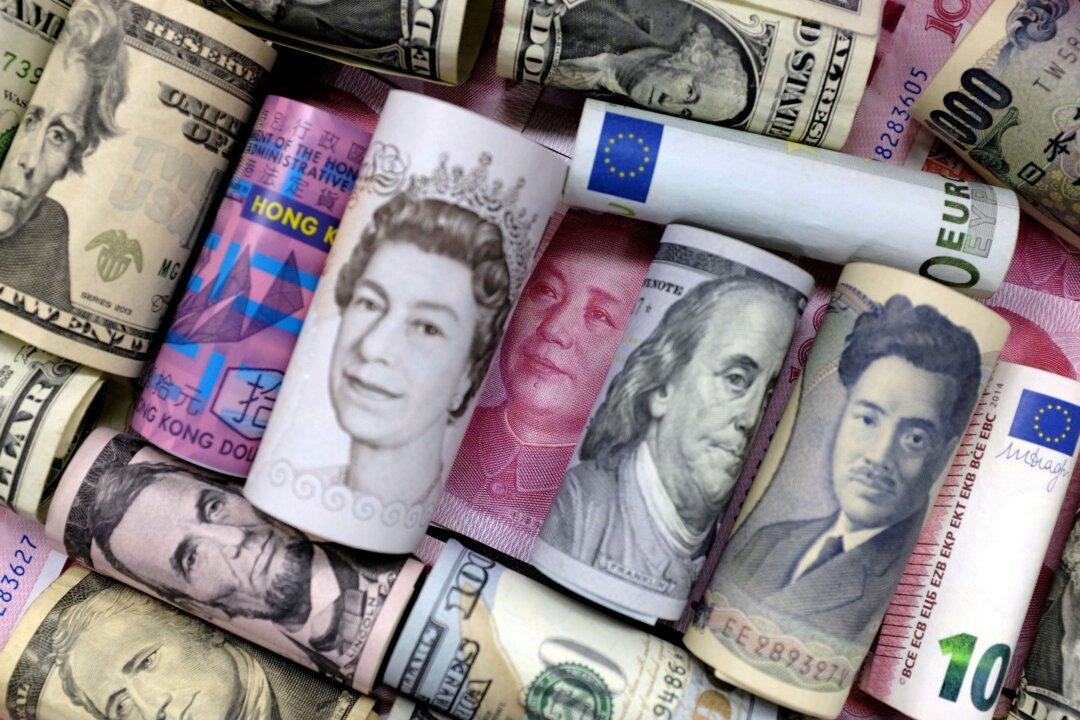LONDON—The dollar consolidated gains on Friday and was on track for its biggest weekly rise in seven months as bets of higher interest rates fuelled the U.S. unit’s gains versus rivals.
With money markets pricing 32 bps of rate hikes in March and as many as 124 bps in cumulative increases before the end of the year, the dollar was in the limelight even as broader currency markets quietened somewhat after an eventful week in global markets punctuated by a hawkish Federal Reserve meeting.





